- by Carrie Shaw
- on September 17, 2025
(Not a reader? Take a listen instead ⇓)
“By the 14th century, the Norman invasion of Ireland was struggling. Too many Normans had “gone native”, assimilated into Irish life. The remaining settlers had retreated to just four eastern counties: Louth, Meath, Dublin, and Kildare. These four “obedient shires” were the only part of Ireland still under the control of the English crown. The king’s perimeter was marked with wooden fence posts pounded into the Irish turf. These were called “pales,” from the Latin palus, meaning “stake.”
Over the following centuries, the English settlement fortified its boundaries by turning the fenceline into an impressive barrier: a ten-foot-deep ditch surrounded by eight-foot banks on each side and ringed by a thorny hedge. These ramparts were never meant to be an impregnable wall, but they did provide a daunting obstacle to raiders stealing across the borders for English cattle. Within the Pale ditch, settlers lived under the protection of the crown. But once you passed “the Pale,” you were outside the authority and safety of English law, and subject to all the savageries of rural Ireland. “Beyond the pale” then became a colloquial phrase meaning “outside the limits of acceptable behaviour or judgment.” | C N Traveler
I recently wrote about my separation from the religious community I grew up in and the overwhelming response to my article was both encouraging and thought-provoking.
Many people wrote to me, both publicly and privately, to let me know that the article had deeply resonated with them. They expressed that they, too, have had many questions over the years, wrestling with inconsistencies while attempting to find their place in a system they secretly suspected they didn’t fit.
Not many people feel free to speak publicly of their reservations or doubts and I understand this fear and hesitancy. They want to avoid similar censure and they know the penalty for dissenting is potentially severe; loss of relationship, rejection, and ostracisation.
Many also wrote expressing their distress at my experience (regardless of whether it had been theirs or not) and offering their blessing on my continued journey. I deeply appreciated their warmth, kindness, and understanding.
Others expressed dismay that I was no longer part of the community; how would I receive nurture and support? With whom would I now fellowship? Couldn’t I have just stayed to change the culture? Beneath their words there seemed the suggestion of a more serious question; wasn’t this just the beginning of a descent into loss of faith and the inevitable and eventual drift from God?
Others were less complimentary with their feedback. My article was deemed to be slanderous and inaccurate, and I, the author, simply a narcissistic, bitter ex-member, obsessed, while I was “in”, about my ‘rights’ being impinged upon or ‘the (annoying) call of true discipleship interfering with my personal life’.
Now that I was “out”, I was simply an aggressive and confrontational vandal, looking to break something with whatever stones I could throw.
My ‘questions’ were excuses, and, they implied, I ought to be cancelled.
While I thought a lot about the people for whom this article resonated, and I deeply appreciated that they had shared their thoughts with me, I thought more about the other two kinds of responses.
Firstly, I wondered about those who had simply dismissed me and what I had to say. I pondered the mentality that refused to acknowledge any part of my experience as valid, believable, or worthy of discussion.
I wondered at the psychology that would paint me as the intolerant troublemaker rather than the wounded truth-teller.
And I wondered at such blind certainty of their supposed privileged position and their categorical dismissal that God could legitimately be found anywhere outside their own walls. Their confirmation bias was on full display by the way in which they chose to interpret and respond to my narrative.
I thought, secondly, about those who now considered me beyond the pale, out beyond the protection and comfort of the only community that was able to provide such things. Blessings and opportunities galore had been mine for the taking, had I only just remained within the palisade walls. No such blessings or opportunities (or if there were some to be found, they would be few and far between), awaited me outside those walls.
No one survives out there, they seemed to be whispering to one another. She’ll die, for sure.
Well, I didn’t die.
It hasn’t been an easy journey, I’ll not pretend otherwise, but outside those walls is not the wilderness you might imagine it to be. I’d been told that there was nothing worthwhile out there, but I discovered those are simply the words of fearful men, hemmed in by their own definitions and not living free in the Spirit of Christ.
God is out there. He is everywhere, and the more you listen for Him, the clearer He speaks. He is with us always, even when it feels like we’re wandering through a wilderness, even if we’re walking through the valley of the shadow of death.
Beyond the pale, I found men and women, fellow Christians, who deeply love Jesus and are committed to following him. I found people who are not afraid of difference but are compelled by the love of Christ to listen, to reason together, and sharpen iron one with another. To my astonishment, I discovered that they knew the names of the faithful; Abraham, David, Deborah, Isaiah, Mary of Magdala, Paul, and many more.
I discovered my place in the history of the church and learned the names of people from long, long ago – Clement of Rome, Ignatius of Antioch, Iraneus, Polycarp, Junia, Prisca, and Quintilla, brothers and sisters in the great family of God.
I became reacquainted with Scripture in new ways, seeing the Bible as a book to marvel at and pore over, the spirit-breathed and living words of Heaven’s Creator, active and able to deeply transform our hearts and lives, shaping us for His purpose. I learned to loosen my grip on needing to know and understand everything right now, and learned instead to say, “God, show me more of You.”
My way of thinking about the Christian life shifted dramatically. It became very simple (note that I use the word simple, not easy): Confess Jesus is Lord and Saviour (believe the story of Jesus as told us in the gospel) and then take up your cross and follow him, bearing the fruit of a life of repentance. All else is just noise.
I discovered the messy but vital reality of the local church; filled with sinning and flawed humans who are being renewed daily by the grace of God, asking their questions and voicing their doubts along the way.
I learned what it felt like to be pastored to and personally prayed over, concepts that, bizarrely for a Christian, felt foreign and strange to me.
I discovered some churches that weren’t for me and found others that were. The Christian world is nothing if not perfectly imperfect and there’s a lot of diversity out there. It’s not for me to judge the legitimacy of their place as one of the Lord’s lampstands (Revelation 2:5), but it is my responsibility to use discernment when choosing a church home (1 John 4:1-5).
I found myself asking: what am I responsible to bring and what am I responsible to nurture? In this sea of Christianity, how do I best serve and represent Jesus in the place where I now find myself?
Let me now answer some of the questions that have been put to me. It may be that these are questions on your mind too.
Who Do I Fellowship With?
Well, other Christians of course. A Christian is someone who has “confessed that Jesus is Lord and believes in their heart that God raised him from the dead.” (Romans 10:9). They’ve demonstrated their belief by repenting of their former way of life and by being baptised into the saving name of the Father, Son and Holy Spirit (Matthew 28:19). They’ve been transferred out of the dominion of darkness and into the kingdom of the Son of God’s love, a kingdom of life and light.
The first letter of John puts it this way:
“What was from the beginning, what we have heard, what we have seen with our eyes, what we have observed and have touched with our hands, concerning the word of life — that life was revealed, and we have seen it and we testify and declare to you the eternal life that was with the Father and was revealed to us — what we have seen and heard we also declare to you, so that you may also have fellowship with us; and indeed our fellowship is with the Father and with His Son, Jesus Christ. We are writing these things so that our joy may be complete.
This is the message we have heard from him and declare to you: God is light, and there is absolutely no darkness in Him. If we say, “We have fellowship with Him,” and yet we walk in darkness, we are lying and are not practicing the truth. If we walk in the light as He Himself is in the light, we have fellowship with one another, and the blood of Jesus His Son cleanses us from all sin.” | 1 John 1:1-7, CSB
If we abide in Jesus, then we are in common union – community – with all those who are also abiding in him, both in our present time and throughout the ages, a great cloud of faithful witnesses of the risen King, the people of the kingdom (1 John 2:28, John 15:1-27, Hebrews 12:1-2). We are connected to one another by the precious blood of the lamb and nothing can separate us from the love of God, apart from us choosing to leave the light and walk again in darkness (Romans 8:31-39).
The ordinance of communion – taking bread and wine together – is an important part of our Christian life, as members of Jesus’ body and God’s family. It is a key element of Jesus’ covenant with each one of us individually and collectively as his church, the price of which was his own blood.
Written about 300 years after the birth of Christ, the Apostles’ Creed summarises the foundational Christian beliefs taught by the early church and is a bold declaration of Christian faith in Jesus Christ. It particularly affirms the teachings regarding Jesus, that of his virgin birth, his crucifixion, his death, and his subsequent resurrection; core elements of the gospel of good news.
It is a primary statement of faith shared by Christians around the world, uniting them in common with the work achieved in and through Jesus. No Christian worth their salt denies this creed.
The church, the universal church, exists outside denominational walls and extends beyond historical boundaries. There is only one body of Jesus Christ, and holding to this spiritual reality means holding to the reality that fellowship with the body happens when we abide in the body.
Why Couldn’t I Stay And Change The Culture?
Cultures don’t happen overnight. Made up of an interconnecting set of goals, roles, processes, values, practices, attitudes, and assumptions, the culture of an organisation is practically its DNA.
Changing a culture takes committed leadership, and often requires years of concerted and consistent effort, including intensive work to communicate and reinforce new ways of thinking, desired values, and changed behaviours. In fact, in the case of organisational transformation (such as church), it can take a minimum of seven to 10 years to change the culture.
But we humans are very resistant to change in general and attempting to change the culture of an organisation is particularly difficult as it’s deeply embedded in the system. When people believe that their culture is superior to other cultures, they tend to resist any influence other cultures may bring (you can read more about this here).
I came to realise that I didn’t have 15 years, or 10 years or even seven years up my sleeve. My children had reached their formative and impressionable years and there were many aspects of this culture that I didn’t want them to absorb or be absorbed into. I also realised that while I had been hopeful of the possibility of a shift in culture, I had not fully understood how deeply embedded it was in the heart of a system so strongly resistant to change.
This was a culture that has existed for years and years, unchanged and unchallenged. It did not want to change and it saw no need for change. I began to understand it would take many years of sustained and concentrated effort by many more persons than myself, to see any kind of tangible difference.
I felt I had more hope of reaching the moon than I did of changing this culture by staying.
Have I Lost My Faith?
I said that this journey hasn’t been easy. And it hasn’t.
When a person experiences loss of community, they also have to contend with what can feel like loss of identity. While we would all agree in theory that our identity rests, or should rest, in Jesus, in practice we are also deeply shaped by our place within community, in knowing and being known by the people who surround us.
Beyond the pale is initially daunting and lonely. Everyone you ever knew is on the other side of that fence.
I was reminded during this time of the story of Hagar, who had been driven into the wilderness by the harsh treatment of her mistress Sarah (Genesis 16:6-13).
Miserable, lonely, and afraid, the Lord found Hagar beside a spring in the wilderness and spoke words of comfort and hope to her. She names God in that place as ‘El Roi’, meaning, “You are the God who sees me.”
I have repeated this to myself many times in the past few years when doubt and discomfort has crept in. Not doubt in God, but doubt that He still had His hand over my life, that He was the God who looks after me, that I was still seen and known.
Having faith is firstly a posture of the heart, an orientation of trust in or towards something or someone. My faith was placed in Jesus at 16 years old and my trust in God remains firm. I remain confident that the Spirit will lead me in all truth and that the important things God wishes me to know, He will make known.
I trust Him, even when I am confused about His plans for me, even when I don’t understand the lessons He’s teaching me, even when I can’t see what the future holds.
I trust Him even when I’m wracked with anxiety and overwhelmed by uncertainty. I trust Him even when life is challenging and change is necessary. I trust Him because I believe that the same Spirit that rose Jesus from the dead lives in me. If God is for me, who can be against me?
This journey has challenged me in ways I never imagined and I’ve wondered many, many times, how did I get here? But I know, for sure, He is still the God who sees me and takes care of me.
I have not lost my faith.
Where Would I Find Nurture And Support?
The wilderness is an unforgiving landscape, where all reliance on self is brutally highlighted for what it is, inadequate, insufficient, a lie. To my dismay, I initially found myself echoing the murmurs of the children of Israel in the wilderness. I wondered, had God brought me out here to die?
This was the first lesson I had to learn: Jesus never promised this Christian life would be easy.
The second was this: God always provides.
It was not the wilderness I imagined it to be. God sent people into my life during this time: good, loving, solid, Jesus-loving people, who prayed with me, ate with me, opened their homes and shared their lives with me.
They personally testified to God’s goodness in both good times and bad. They encouraged me to persevere in faith, nurture forgiveness, run after grace, and ground myself in God’s love. “Love bears all things“, they reminded me, “believes all things, hopes all things, endures all things.“
Like the children of Israel who had wandered in the wilderness, God had ensured I was still provided for.
“There’s honey in the rock
Water in the stone
Manna on the ground
No matter where I go
I don’t need to worry now that I know
Everything I need You’ve got”
Honey In The Rock | Brooke Ligertwood
Where To From Here?
I am a Christian for the rest of my days. I believe in Jesus Christ, descended from David, risen from the dead. This is my gospel.
But as to the next step? I don’t know what God has in store for my future.
I hope to be a part of a flourishing and vibrant church. I hope to serve and witness alongside people whom I get to love and know deeply, and by whom I feel seen and loved in return.
I hope to be a worthy example of faith for my children and a trusted companion and woman of valour to my husband.
I hope that God uses me in many small, indiscernible ways to help grow His kingdom here on earth. If He has larger, more visible plans in mind, I hope I have the courage to step into His calling for me.
I hope to avoid pain and difficulty and loss, but I know these will inevitably come my way, so I hope to be brave and true when they do.
And in all these things, I recognise that I will be flawed, always flawed, but I continue to give thanks for the grace of God and the blood of Jesus, which cleanses us from all sin.
Most of all, I hope to hear the words of the king on that final day: “Well done, good and faithful servant. You have been faithful over a little; I will set you over much. Enter into the joy of your Lord.”
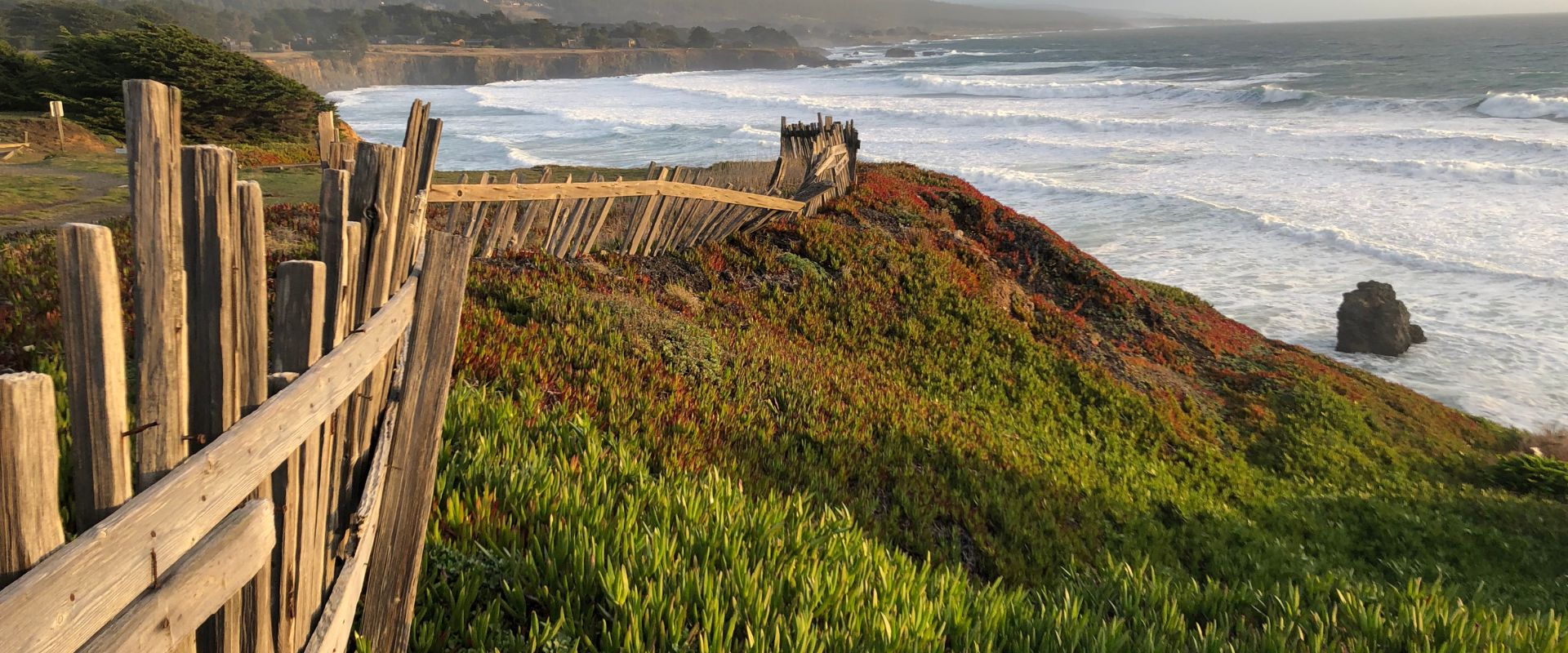

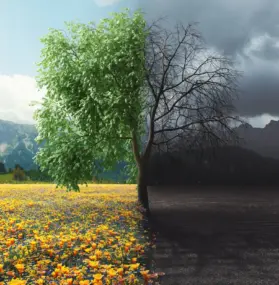
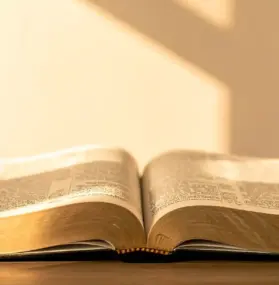
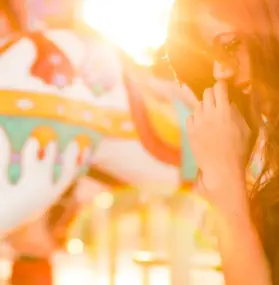
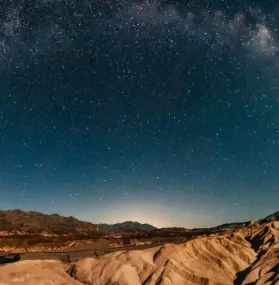

Thank you for your vulnerability and thoughtful response to the comments/questions directed at you following your precious blog post about the decision to leave the faith community in which you were raised. I certainly perceive you as a wounded truth-teller with a gift for eloquently expressing your heart and experiences to prompt others to similarly examine what they believe and why, and take steps to follow in the Way of Jesus. I feel the pain behind your words and pray that you will be comforted and strengthened by His Spirit as you earnestly seek to live and speak the Truth you’ve discovered. The hopes you shared in closing, are ones I share for myself. The Church is a broken but beautiful living organism which I am sure will bring us both heartache as well healing. I am praying you would find a home in community, to be loved and seen, encouraged and your gifts utilised. Thank you for sharing Carrie. ❤️
Thanks so much, Kylie. I really appreciate you taking the time to comment and share your thoughts. A prayer of blessing for you and your family too and that our mutual love and hope for The Church continues to flourish and grow in the places we find ourselves placed. Love to your family from ours x
Thanks Carrie. Live the journey, wherever our lovely Lord leads. I see in your writings hints if thoughts from Philip Yancey as well as Rachel Held Evans.
Thanks so much. Love in Jesus to Luke, yourself and the children. All blessings from God’s unceasing stores of Grace.
Thanks so much for your comments and lovely encouragement, Martin. What a compliment – Philip Yancey and Rachel Held Evans are among some of my favourite authors (and I particularly found Rachel Held Evan’s ‘Searching for Sunday’ an insightful and thought-provoking read). Much love also to you and Barbara.